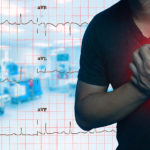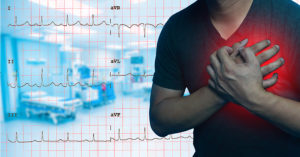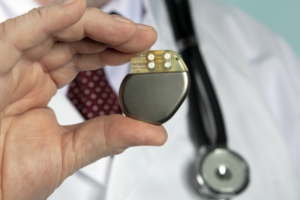 What we choose to feed our bodies is important. It is the fuel we run on. It is the building block for new cells to be created. It is what gives us energy, and vitality, and enables us to keep going year after year.
What we choose to feed our bodies is important. It is the fuel we run on. It is the building block for new cells to be created. It is what gives us energy, and vitality, and enables us to keep going year after year.
If you have heart disease diet is even more important. Let’s take a look at the top four foods to avoid giving your heart and cardiovascular system the best chance at good health.
Processed and refined grains
Whole grains are good for you. Refined grains are not. Processing removed much of the original nutrition. Worse yet, they add fat, sodium, and sugar, all of which can lead to weight gain and high blood pressure.
AVOID:
- instant oatmeal
- white bread
- white rice
- Processed breakfast cereals
Refined and Processed Sugars:
Sugar has a negative effect on the heart. It provides the body with “empty calories” that crowd out the benefits from the healthier foods you consume at the same time, essentially canceling them out. Eating high amounts of refined sugar can raise your blood pressure and triglyceride levels and can contribute to the onset of type 2 diabetes.
AVOID:
- Soda
- Frozen foods
- candy and sweets
- Canned foods
Saturated and Trans Fats
Unsaturated fats are good for you (coconut oil, avocados, macadamia nut oil, peanut butter, etc.) While trans-fat is arguably more harmful than saturated fat, they both can do harm to the body by raising “bad” cholesterol and lowering “good” cholesterol.
AVOID:
- deep-fried foods
- pie crust
- margarine
- microwave popcorn
Sodium
Our kidneys are capable of processing a limited amount of salt. Excess sodium can increase blood pressure in the arteries. It can bring on high blood pressure and put you at an elevated risk for heart attack and stroke as well as kidney failure.
AVOID:
- processed meats
- fast food
- packaged snack foods
- chemical-laden salad dressings
Tampa Cardiology Associates offers nutritional services as well as cardiology and vein health help. WWW.TAMPACARDIO.COM 813-975-2800. Visit our site to learn more or give us a call to schedule your appointment.




 There is a good chance that you will feel a heart arrhythmia at some point in your lifetime. A large percentage of the population will experience abnormal heart beats. Most of the time these off beats are harmless. They can happen in perfectly healthy people who show no sign of heart disease. There are, however, some types of heartbeat abnormalities that can be serious and even potentially deadly. Heart disease also raises the risk of fluctuations.
There is a good chance that you will feel a heart arrhythmia at some point in your lifetime. A large percentage of the population will experience abnormal heart beats. Most of the time these off beats are harmless. They can happen in perfectly healthy people who show no sign of heart disease. There are, however, some types of heartbeat abnormalities that can be serious and even potentially deadly. Heart disease also raises the risk of fluctuations.
 Has this past year taken it’s toll on you?
Has this past year taken it’s toll on you?
 If you’ve ever experienced depression you understand that it can sometimes feel like you have a broken or heavy heart.
If you’ve ever experienced depression you understand that it can sometimes feel like you have a broken or heavy heart. 
 Ready to take the leap and commit to heart health? It isn’t as challenging as you think. Just follow these tips for ultimate heart health!
Ready to take the leap and commit to heart health? It isn’t as challenging as you think. Just follow these tips for ultimate heart health!
 Anxiety disorders affect 40 million adults in the USA.
Anxiety disorders affect 40 million adults in the USA. 

 A pacemaker can save your life, but it is also sure to alter it as well.
A pacemaker can save your life, but it is also sure to alter it as well.
 Most people when they hear the words heart problem begin to think immediately of a heart attack.
Most people when they hear the words heart problem begin to think immediately of a heart attack.